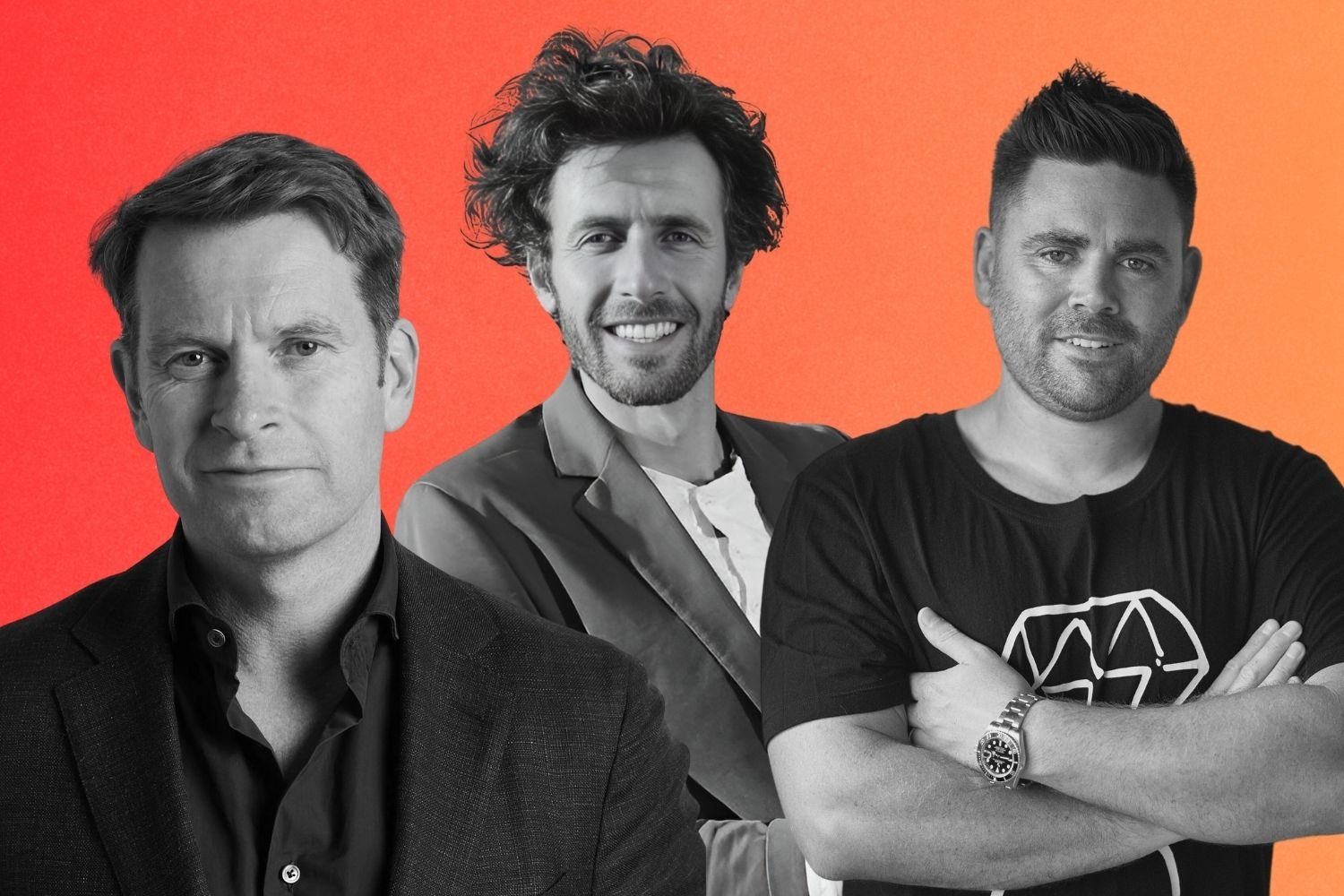Horace Skincare Review: Why Horace Is Dominating The Modern Man’s Bathroom Cabinet
Feb 21, 2026Australian Entrepreneurs On Managing The Mental Health Strains Of Running A Business
- Oct 28, 2024
- 0 Comments
635

- Entrepreneurs suffer disproportionately from mental health concerns.
- As Mental Health Month gets underway, we asked Aussie businesspeople how they manage the strain.
- Long weekends, good mates, meditation, and much more make the cut…
The draw of being a self-styled entrepreneur is immense. We live in a world that idolises founders — think of the Silicon Valley poster boys, for example — Bald Bezos, Zany Zuckerberg, and AI-archangel Sam Altman — all are reified by the media and fanboys alike; with a good idea and a sprinkling of hard work, they’re living the dream, their way.
And while we’re all thrilled for their success, this is a far cry from the daily experience of your average entrepreneur. New data reveals that almost 90% of entrepreneurs suffer from at least one mental health condition, with anxiety, crippling stress, and burnout among the top contenders. Why? The harsh reality is that before the glamorous more glamorous aspects of success come years, often decades, of isolation, 24/7 work, and financial precarity.
With Mental Health Month well underway, we felt it was high time to speak with some of Australia’s most exciting entrepreneurial talents to see how their mental health is holding up, and what they do to manage their mind while they chase the grind…
Why Is Being An Entrepreneur So Hard On Your Mental Health?
Marty Spargo, co-founder of REIZE (the Dollar-Shave Club of energy drinks), says these statistics don’t surprise him because “being an entrepreneur is absolutely terrible for your mental health.” Most new businesses fail, and with that comes lost time and money. Marty told DMARGE that this can lead to, “Doubting yourself more broadly and at times depression, or even suicide.” He goes on to say, “Even successful startups are emotional rollercoasters; it’s just they have more good days than bad.”
“The media latches on to the few success stories and anyone considering leaving their job to start their own business aspires to emulate the success of the few unicorns.”
Related Stories
“The problem is,” he continues, “That’s completely unrealistic. Instead, we should show the truth about startups and the fallout left in the wake of failure so that people can have a more complete view of the realities of being an entrepreneur.”
Patrick Kidd — an entrepreneur whose luxury hair salon PATRICKS went from start-up to multinational brand extremely quickly — backed this up, pointing out that running your own ship takes a serious mental toll. “Being an entrepreneur is a rollercoaster, seriously! One minute you can be on top of the world and feeling invincible then one email or call later you can feel so terrible.”
So whether you’re working a stressful 9-5, running a start-up, or just contemplating a side hustle: take a serious look at the following mental health tips.
Three-Day Weekends
If you can’t bring yourself to take a holiday, this is the next best thing (and could prove more sustainable in the long run). Stevan Premutico credits it with enabling him to work for a decade—nonstop—before selling his business to Tripadvisor.
“Having not taken a holiday for 10 years, this became my staple towards the end. It sounds so simple but it’s so powerful. A three day weekend away from the office to relax, recharge and reinspire. Lots of reading, podcasts and thinking. I would do my bigger thinking here… for the biz, and for my life. It’s amazing what can happen when you just get away for a few days and let your heart and mind roam free.”
Build A Loyal Team
Matt Jensen, founder of M.J Bale, says that it’s important to have dedicated business strategies in place to help you deal with the peaks and troughs of entrepreneurial life: “Delegation is important, as is making sure you’ve got a great team and bench, just like in sport.” Although “our biz is our baby and sometimes it’s difficult to let go”, it’s important to have a great person by your side...
“The catalyst for me being able to get more balance and to step back more was when I found a truly amazing second in command, Asheesh Chacko. I trusted him with my life and for the first time in many years I knew the biz would survive (and perhaps even prosper!) if I wasn’t first in, last out and on 24/7!”
Stay True To Your Vision
Jamie Gonzalez, founder of Limitless Living, reminds us that prioritisation is essential to stay true to your vision. “If I do feel pressured then I know I’m doing something within my business I shouldn’t be doing.”
“If there is something I don’t enjoy doing I task it out. The more space I have to enjoy what I actually love doing—the more I come up with creative content and opportunities in a much more effortless way.”
Personal Outlets
Patrick Kidd says that “if you really want to dance with the devil so far as opening yourself up for stress, anxiety and no sleep” it’s essential to have personal outlets to zap the stress. Physical well-being is a big one: whether it’s weights, running, touch footy, swimming or whatever your thing is. For Matt Jensen personally, he enjoys F45, a group training regime. He’s also a big fan of meditation…
“I practice transcendental meditation religiously and think it’s really beneficial.”
Get Coached
Patrick Kidd tells us that “on the back of some advice from one of my board members I met a psychiatrist who specialised in people that worked in high-stress positions.” They recommended five to ten minutes of ‘being present in the moment’ to give his brain a break, once a day. “I felt a bit weird doing it the first time but it’s probably one of the best things I have ever done and now I recommend it to everyone I meet in similar positions to me.”
He describes it like a Ferrari’s engine: it’s built to rev hard, but only for relatively short periods of time, then it needs to cool down:
“If revved too hard and for too long the engine will blow up and you don’t want that happening to your brain when you have put 10 years of your life and millions of dollars of investors’ money into a business, not to mention the effect this would have on your personal life, friends and family!”
Don’t Neglect Your Friends
Stevan recounts how he gave some support to a friend who was beginning the start-up journey. “A few months later he called me and said, ‘Everything you said was bang on. But there is one thing you never told me: it’s so bloody lonely!’” The entrepreneur journey is a tough, but beautiful ride. Although sacrifices are inevitable, make sure you keep putting effort into your friendships.
Set Boundaries
Stop feeling guilty and put boundaries in place, was a strong across-the-board message. For Stevan, the hardest aspect of this was “to stop feeling guilty if I didn’t respond to an email within minutes (at any time of the day) or take a call from one of my team 24/7.”
“I realised that I couldn’t be a great leader, a great thinker or fun to be around if I was ‘on’ all the time and always on edge…so I started to impose boundaries.”
A positive side-effect of this, according to Stevan, is you will develop a newfound appreciation for your team’s boundaries and balance as well. “Boundaries can be as simple as leaving your phone at the door when you arrive home, leaving it at home when you are heading to the beach or giving yourself a half day on Fridays.”
So, should you become an entrepreneur?
According to Stevan, “Few things are as rewarding as getting an idea off the ground, solving a problem, or disrupting an industry.” But you will have to make sacrifices to pull it off. “If you are in it for fame & fortune, don’t take the leap: stay in your 9-5 job and the security and sanity that affords.”
Publisher: Source link







